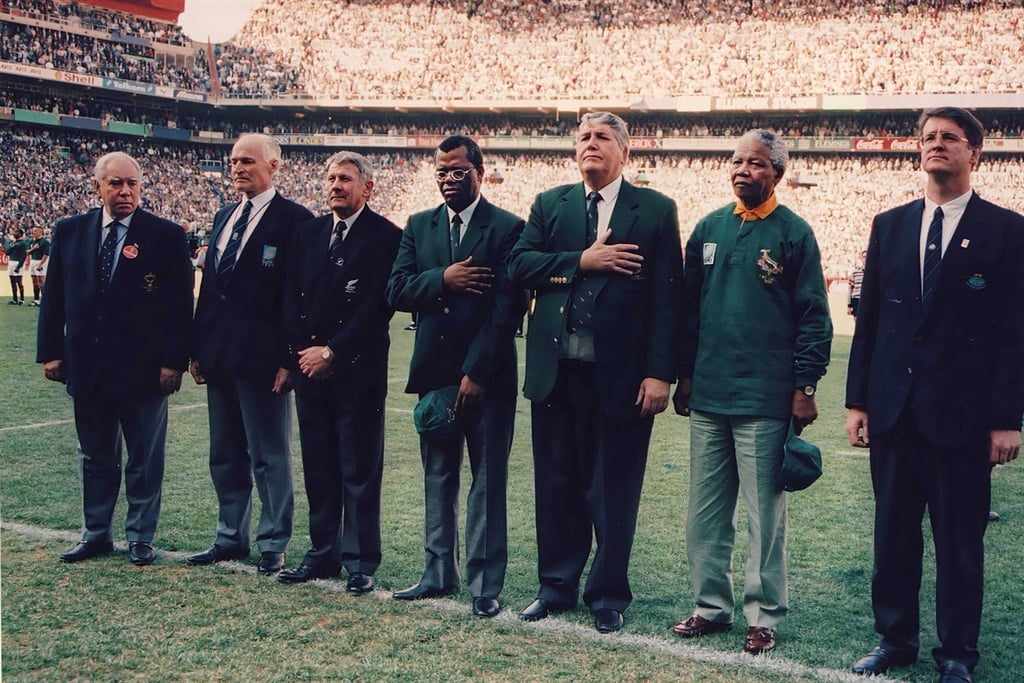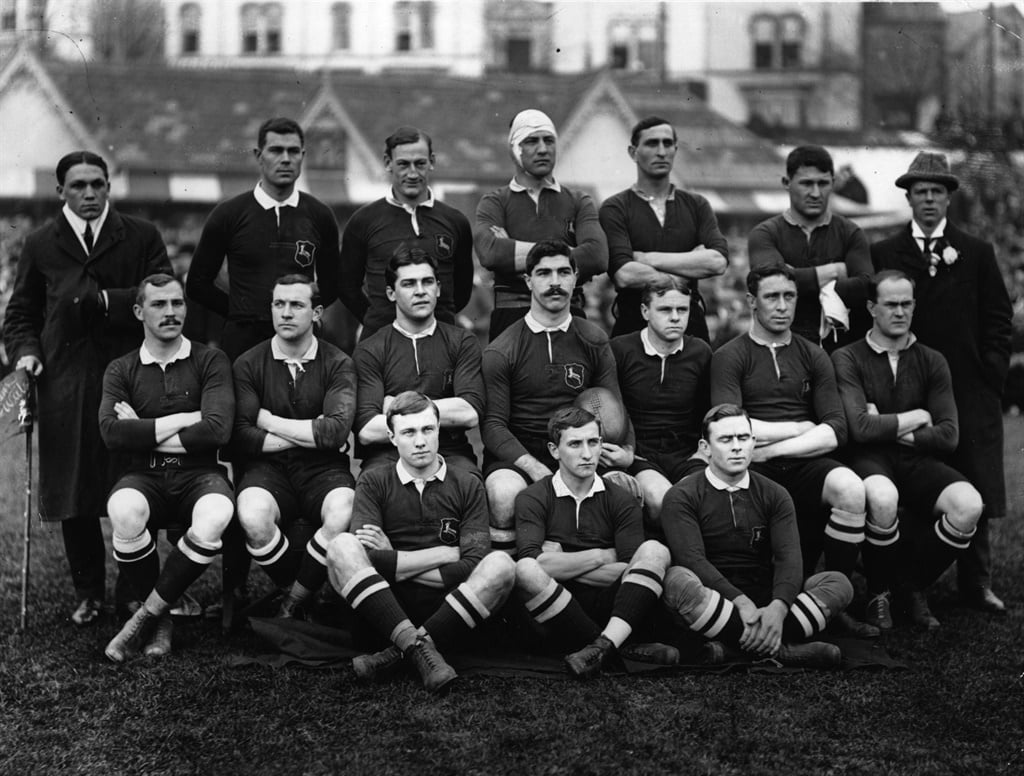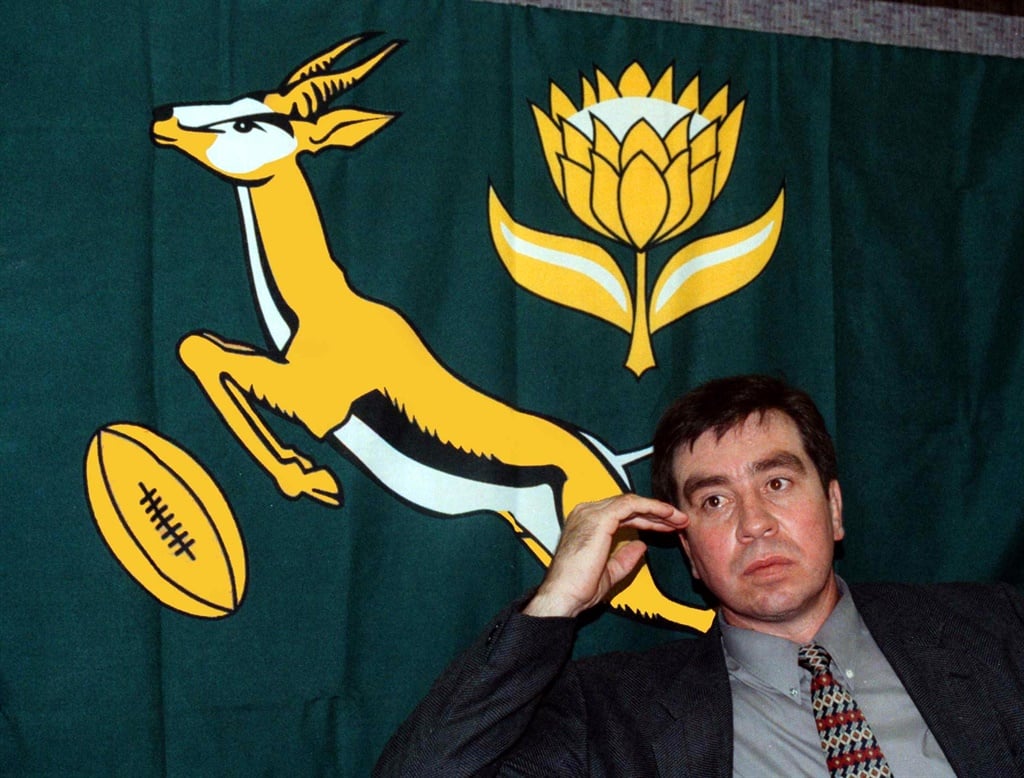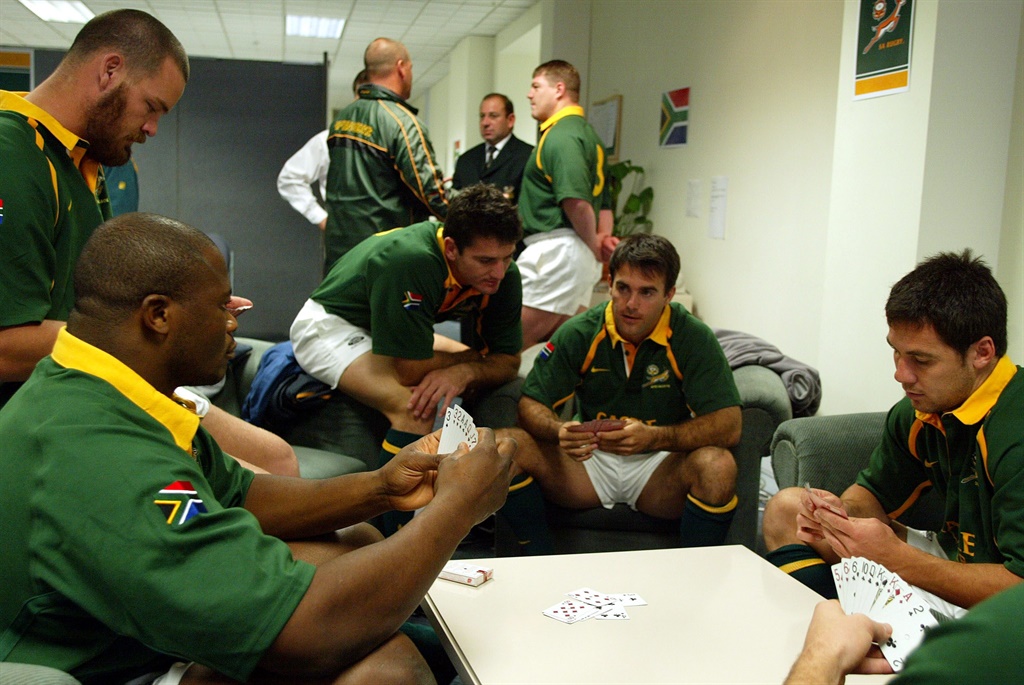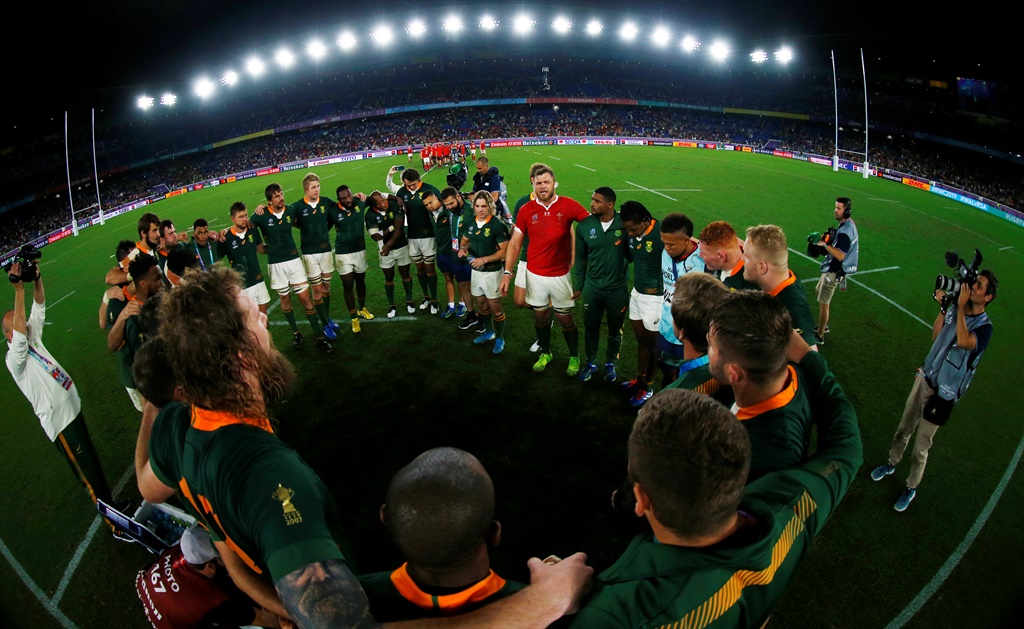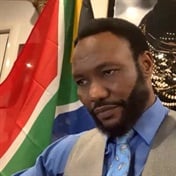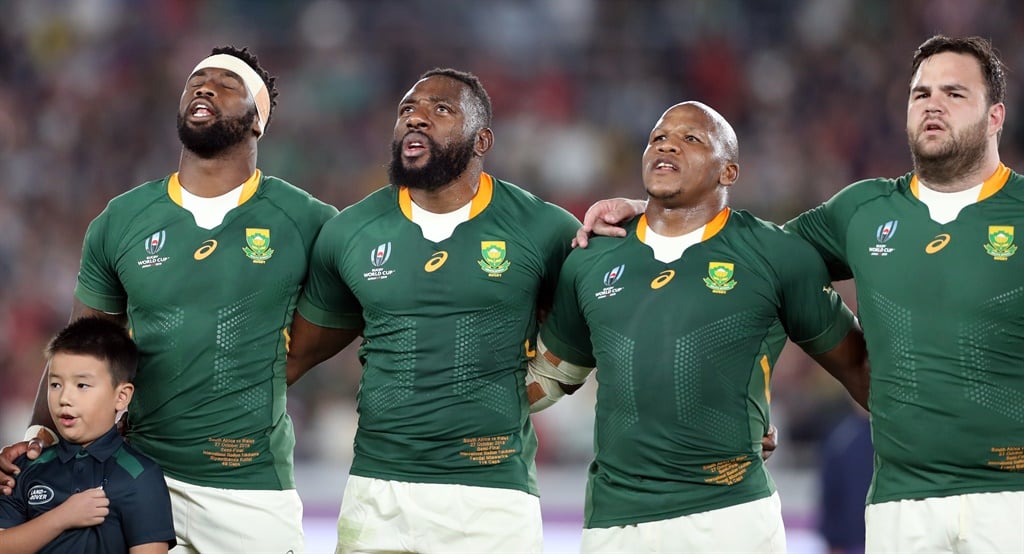
Springbok rugby has always been contested terrain, ever since the first team toured to Britain, through the years of isolation and amid growing pains associated with a new democracy. Siya Kolisi and his team carry much more history on their shoulders than just heartwarming victories and shattering defeats, writes Pieter du Toit.
When South Africa was gradually being readmitted to international sport in 1991 and 1992, with a hastily arranged cricket tour of India (late 1991), entry to the Olympic Games in Barcelona (1992) and a whirlwind visit by the rugby teams of New Zealand and Australia (1992) the country was experiencing a series of political convulsions.
In 1990 Nelson Mandela was released after almost three decades in prison and liberation movements were unbanned by the last apartheid government. Codesa got off to a rocky start in December 1991 and the Boipatong massacre in June 1992 led to a protracted breakdown in negotiations.
It was a country gripped by political uncertainty, much violence and serial distrust.
The ANC’s tentative agreement, brokered by the late Steve Tshwete, that South Africa could again take part on the international sports stage seemed a welcome respite for white South Africans who feared what lay ahead, whereas black South Africans could see the end of 300 years of oppression approaching.
Part of the agreement was that those representing national teams would do so under neutral colours and not the green and gold of the past or the then national flag.
The national cricket team travelled to India under the corporate banner of the then United Cricket Board of South Africa and the Olympians travelled to Spain under a white flag with the logo of Sam Ramsamy’s National Olympic Committee of South Africa (Nocsa). But the Boks remained the Boks, albeit with the addition of four King Proteas underneath the traditional leaping Springbok.
When the All Blacks, the Springboks’ greatest foe, lined up in front of the grandstand at Ellis Park on August 16, 1992, expecting to only hear their anthem, "God Defend New Zealand", they were met with a recording of "Die Stem", accompanied by a thunderous rendition of the apartheid national anthem by the white crowd.
Tshwete and the ANC were furious.
Before the test was played there was agreement that "Die Stem" would not be sung, given the negotiations and unfolding events in the country. But Louis Luyt, the abrasive president of the then Transvaal Rugby Football Union, simply ignored the arrangement, and with thousands of orange, white and blue apartheid flags being enthusiastically flown by the crowd, bathed in the nationalist fervour of the moment.
Politics was never far removed from rugby.
***
For more than 100 years rugby has been the symbol of Afrikaner prowess, strength and resurgence.
After the Anglo Boer War, or South African War, in 1902 it was seen as a way in which the vanquished Boers could reassert their dominance over meek British and English-speaking South Africans.
When Afrikaner nationalism triumphed in 1948 the dominant Springboks were feted as a symbol of Afrikaner excellence, and when apartheid sanctions started to bite the Springboks’ irregular victories on the international stage were used as symbols of a defiant nation, refusing to bow to foreign pressure.
And although rugby football is a mere sport, a game that apart from a small number of former British dominiums has struggled to become a mass-based, global sport, in South Africa it is undoubtedly the most contested of terrains.
No other sport comes under as much scrutiny as rugby, and no other sport has reached the heights of international achievement like rugby has.
Rugby is as political as it is entertainment.
The sport developed as a game among the upper classes in England, and when it was transplanted to the colonies the British public school traditions were continued by missionaries in the hinterlands and those who returned from studies abroad. The sport was therefore dominated by upper class whites, with educational centres being at the centre of the sport’s growth.
But while the newly minted Victoria College in Stellenbosch was in the late 1880s and early 1900s developing a reputation as the dominant club in the Cape, with the South African College (SAC) in Rondebosch a close second, mission stations in the Eastern Cape were busy introducing the game to black children. And while the well-heeled and privileged in Stellenbosch, Cape Town and the then-Transvaal were starting to take to the game, so too was a whole generation of black kids in the old Border area.
Rugby wasn’t only a white man’s game.
***
Throughout the course of Springbok history the team has often been used as either a salve for unity or social repair, or as a tool for division and defiance.
When Paul Roos led his team of "Springbokken" to the British Isles and France in 1906 he explicitly explained that his team, so soon after the ravages of war, did not consist of Englishmen or Dutchmen, but merely "a band of happy South Africans".
And when Francois Pienaar in 1995 lifted the Webb Ellis trophy he famously told television interviewer David van der Sandt that there weren’t 65 000 South Africans in the stadium that supported the team, but "43 million South Africans".
But the Springboks have also been the cause of much pain.
Both apartheid prime ministers Hendrik Verwoerd and John Vorster steadfastly refused integration in the sport, and refused Maori players entry into South Africa as part of All Black teams, only relenting somewhat in granting Maori wing Bryan Williams "special status" as a white to play in the country.
The team was also the target of protestors on the ill-fated tour of Britain in 1969-’70, the so-called "demo tour" when anti-apartheid protestors railed against the team at any opportunity.
And then there were the "barbed-wire Boks" of 1981, when the Springboks toured to New Zealand and nearly ripped that country apart. New Zealand loved rugby, but detested apartheid, and the tour was wracked by violence, protests and national trauma as the Boks were rejected by the broad public and sent home after losing the test series.
In South Africa booing the Springboks became a symbolic way to resist apartheid. The segregated viewing areas at Newlands in Cape Town were famous for booing the Boks and cheering anyone who played them, including the old colonial masters, the British & Irish Lions.
After the sport’s unification, with the white, black and coloured unions joining to form one administrative body, the sport was dogged by the same growing pains that South Africa’s uncertain and clumsy young democracy was suffering.
Racism manifested in a white Springbok coach, André Markgraaff, calling black administrator Mluleki George "a k*****r" and Bok lock Geo Cronjé refusing to share a room with a coloured player, Quinton Davids. Markgraaff resigned and Cronjé was kicked out of the team.
Not to mention Luyt dragging Nelson Mandela to court when he was president over a commission of inquiry into rugby.
***
Rugby, and the Springboks, are part of the great South African experiment. It is a Petri dish in which race and reconciliation, excellence and redress, unity and individualism, culture and tradition are mixed together in support of building a team and healing a nation.
It has over the years been messy and divisive, infuriating and exhilarating all at once – just like the post-1994 project.
Because of its place in history and the architecture of society – a team once rooted in chauvinistic nationalism and exclusion, now diverse, humble and welcoming – the Boks will always be controversial. Whilst many live and breathe the green-and-gold, there are still many for whom it remains symbolic of subjugation and segregation.
The Springboks, much like South Africa, remain a work in progress.




 Publications
Publications
 Partners
Partners




